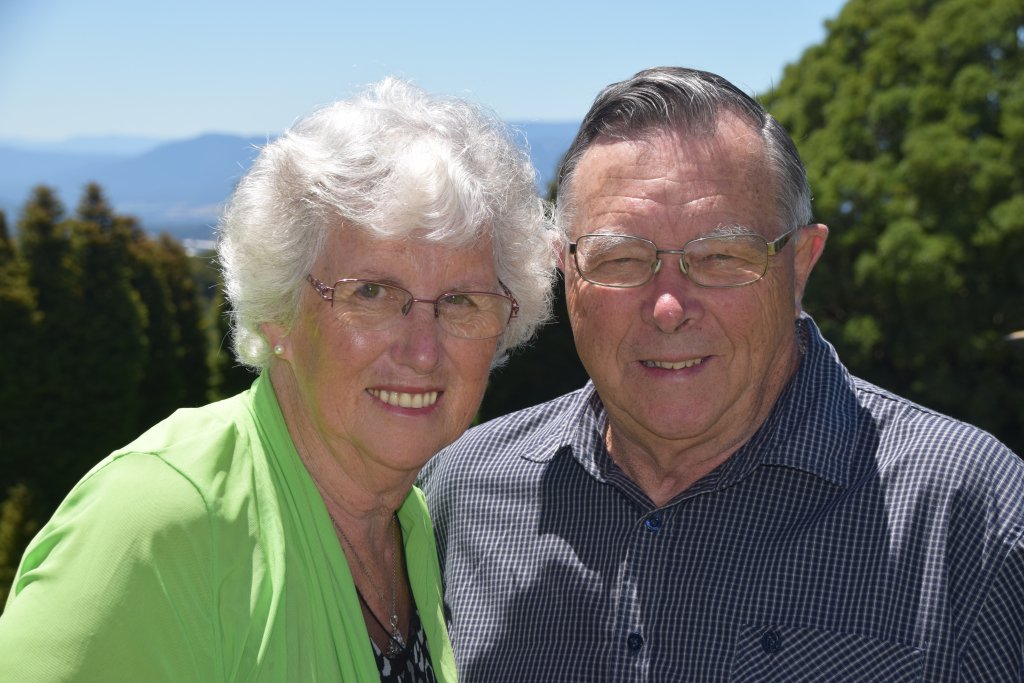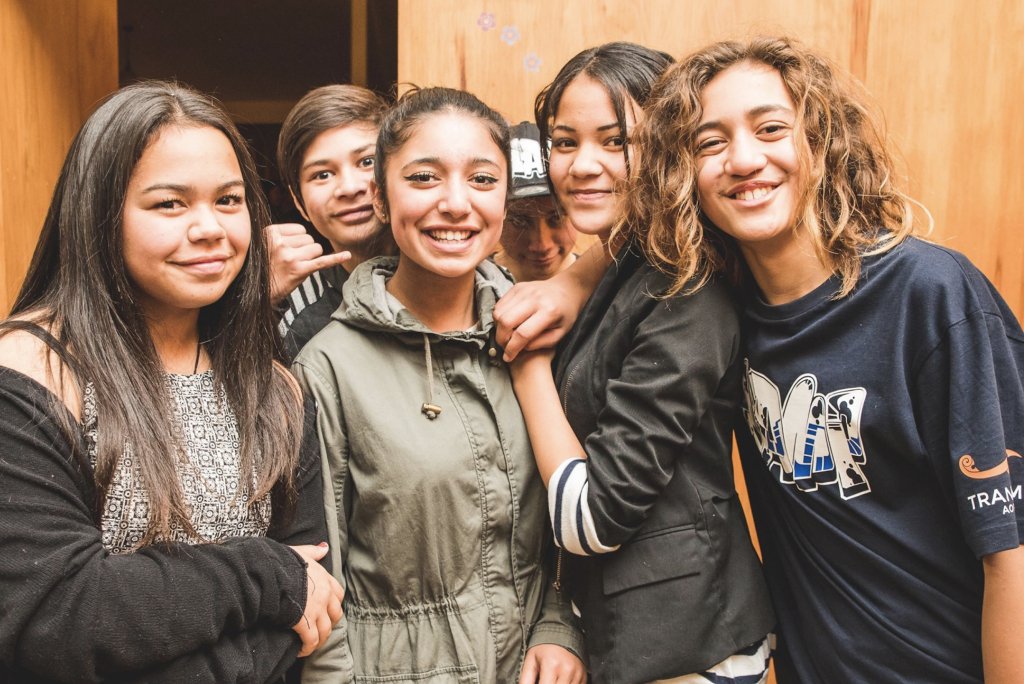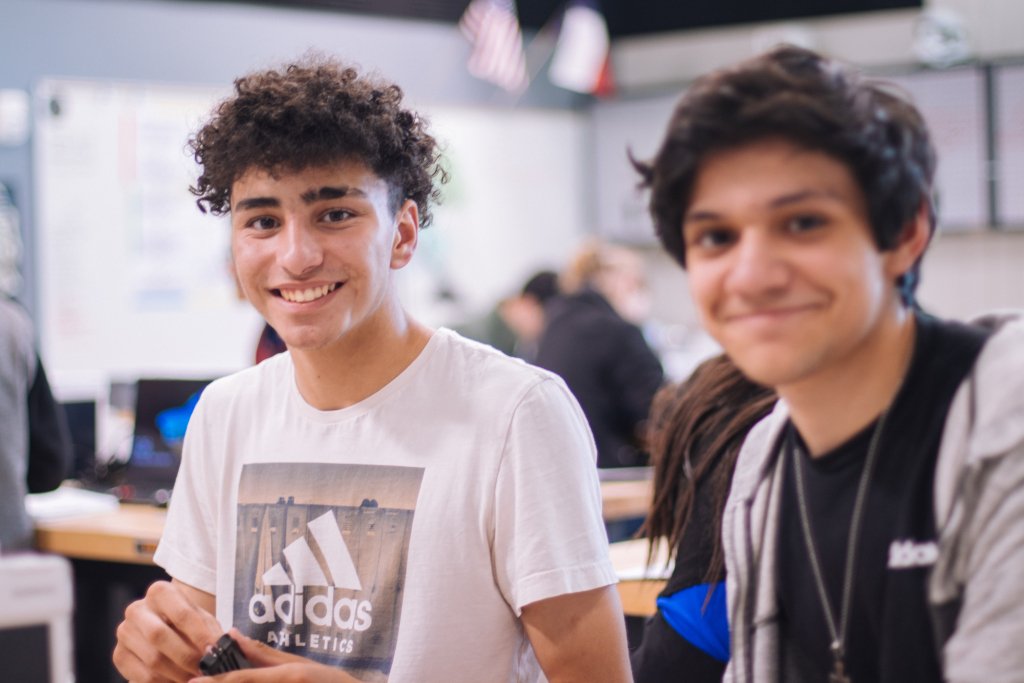Family | Interviews | Life
“What does a ‘transformed’ Aotearoa look like? Great question.”
As Howard Goold and I sit having coffee near Putaruru-based Transform Aotearoa’s office, the organisation’s CEO reflects for a moment.
“Transformation starts with individual lives. Like a ripple effect, transformed people, and those transformed lives, will result in transformed families, transformed communities and – ultimately – a transformed nation.
“A good question is, “…are you operating where you know God’s called you to be?” When you are, you can be there simply pointing people to Jesus and trusting Him with the results.
“As we sow seeds wherever it is God has us, let’s remember it’s not us who changes people. And, we can’t transform them.
“That’s the Holy Spirit’s work and God gets all the glory. At Transform Aotearoa, the team and I simply know we’re called to be there. I’m delighted to work with such a great team and see God move as our collective heart is to be His ‘agents’ – His hands and feet.”
Transform Aotearoa – which has been operating for nearly nine years – offers free community programmes with people at its heart to ensure those most at risk, or in need of community support, can access the help, personal development and growth opportunities on offer.
In 2022, more than 400 people were connected to Transform Aotearoa services and courses which – among others – include everything from driver licensing to computer literacy classes and barista training.
I sat down with Howard for a wide-ranging chat – discussing his heart for Aotearoa, being born into a missionary family, serving with YWAM in Spain and his time as a pastor. Among everything else was an implicit encouragement to – in every season of life – wholeheartedly trust the Lord as He directs our steps.

Firstly, I’d love to hear about your background. I read that your parents were missionaries and you were born in India. What an amazing heritage!
Absolutely. My father was born in China. My grandparents were missionaries with China Inland Mission (CIM), founded by Hudson Taylor. It’s now Overseas Missionary Fellowship (OMF) International.
The first time my father came to New Zealand, he couldn’t return to China so he served in Palestine. He returned to New Zealand again in 1939 and, this time, met my mother. After they were married, they’d intended to return to Palestine, but – because of war – they ultimately stayed in India. My siblings and I were all born there. Reflecting on that upbringing is amazing. Missions has been in my bloodline for a long time and I really value that. To think my grandparents first went out to China in the 1870s! You can’t help but be shaped and grounded by that background – it instils in you the understanding that people are people and everyone simply needs Jesus.
You were farming for many years. How and when did you come back to New Zealand?
I came to New Zealand in 1959, and let’s just say the Kiwi school system and I never got on very well! I didn’t even sit school certificate, let alone fail it! Our schooling in India was quite different. Ultimately, I went farming. I was in the industry for nearly 40 years from 1960 to 1997. I began my time as a farm labourer, progressing through to ultimately owning our own farm.
What’s been an experience that has shaped your personal walk with Jesus?
Good question. I remember someone saying, “…a mouse born in a biscuit tin is not a biscuit.” Similarly, a boy – like myself – born into a Christian home is not automatically a Christian. Those of us with that upbringing are obviously taught the scriptures and foundational truths of our faith right from a young age. At some point though, we have to make the choice that our walk with Jesus is our own – no one else’s on our behalf.
That moment for me was when I was about 16. Billy Graham came to New Zealand and I went and listened to him speak. After he returned to the United States, back here in New Zealand, I went to listen to another man who – at that time – worked for the post office. He’d been responsible for ensuring landlines were in place all around New Zealand so people could hear Billy Graham’s messages during his visit. As this gentleman talked, he shared 3 John 1:2 – “Beloved, I wish above all things that thou mayest prosper and be in health, even as thy soul prospereth.” (KJV).
Essentially, John’s hope is that our outward, physical health would reflect our spiritual health. A question was then put to us, “…what would we look like if our outward appearance suddenly reflected our current spiritual condition before God?”
In my case, I knew then that although I’d been raised in a Christian home, I wasn’t – at that stage – right with God. So, I made a personal decision to follow Jesus Christ.
Wow. On that note, can you tell me about your family?
Sure. I was working on a farm in Manawaru when my wife Jill and I first met. We married 55 years ago in 1967. We have three children – our daughters Catherine and Val and our son Andrew. Jill is a qualified nurse and, over the years, she’s also spent time helping me on the farm. She’s a very gifted person and a huge blessing. Reflecting on the many facets of life the Lord has led us through over the years, Jill has been such an amazing support to me.
I’d go as far as saying I’d never have got anywhere if it hadn’t been for that love and support. She has a huge heart for people herself – she currently drives for Franklin Family Support Services in South Auckland – taking people to medical appointments which they would be otherwise unable to get to. We also have six grandchildren.
When you left farming, what was the next door God opened for you?
We ended our farming career in 1997 and moved to southern Spain. There, we worked with Youth With a Mission (YWAM) North Africa for almost seven years. Jill and I were hostel managers at their facility which allowed missionaries in the region to have some rest and relaxation. Each year, about 2000 people would come and stay at the 15-bedroom facility she and I looked after. In October 2022, we were blessed with – and very excited by – the opportunity to actually go back to Spain for a month for a reunion of sorts.
So, how did Transform Aotearoa get started?
Nearly nine years ago, a group of Putaruru business people interested in establishing a faith-based response to community issues decided they wanted to invest initial funding into a locally-run organisation which would help address needs in the community at grassroots level. At the time, the then Government was facilitating its nationwide Social Sector Trials – a multi-agency, high level Government youth and community transformation initiative. Here in South Waikato, a lady named Jade Hohaia had been the project manager for that initiative in the district. Her primary role was to facilitate communication between Cabinet Ministers and community leaders, allocate funding accordingly and initiate grassroots strategic action to best meet the needs of youth and families.
At the meeting Jade shared how, as she carried out that work, She had not only identified many local gaps in provision, but discovered that those ‘gaps’ did not receive Government funding. The late Ian Elliott was also present at that meeting – he had a big influence in Christian circles. Based on that discussion, God stirred in his heart – and the heart of his wife Margaret – a desire to facilitate a place where people knew they belonged and were accepted. He wanted to help people build a sense of manna by equipping them with life skills. Ian was a wonderful man of God, and as some readers may know, he went to be with the Lord very quickly.
I think in a way, a challenge to those of us who valued Ian – and so many did – is let’s carry on his vision. Essentially, in part, that’s what we’re doing every day through our work here at Transform Aotearoa. Jade wrote Transform Aotearoa’s flagship programmes and when Lamen Hohaia – who was living in Christchurch working as a senior prison officer – and his wife Belena shifted to Putaruru, Transform Aotearoa was established. Lamen and Belena continue to be two of our Putaruru community liaisons today.

How would you describe Transform Aotearoa’s aim, and how did you come to be involved?
We arrived back in New Zealand from Spain in 2003, and the Lord opened the door the following year for us to become pastors at Putaruru Gospel Chapel. We served in that capacity for a decade until retiring in 2014. By that stage, God had placed it on my heart that my stepping aside would allow opportunities for other people to serve in that way. So, Jill and I retired to Pokeno.
It’s quite a long story as to how we ended up there, but God provided amazingly along the way. I also had the opportunity to volunteer as a prison chaplain at Spring Hill Corrections Facility – a season which came to a close after three years. Literally within 45 minutes of returning from my last day at the prison, I got a call about my current position. I have absolutely no doubt it was God opening the door – being at Transform Aotearoa has proven to be fulfilling in a very special way.
Simply put, our aim is to love people, inspire change and honour God. We’re dedicated to building healthy whānau and to providing practical tools and support to help those in our provincial communities achieve that. We believe that in changing the home-base, the resulting benefits are far-reaching throughout the community. We’re committed to journeying with – and supporting – people until they reach a point where they’re able to make positive changes in their own lives.
Many of those referred to us are perhaps living life doing things the way they’ve always known to do them, yet they are on a journey of change. A big part of our focus is on encouraging people that genuine change starts in the home.
What are some of the community initiatives facilitated through Transform Aotearoa then?
We have a wide range of free programmes for both men and women. Te Kaupapa Whakamana – what we call a ‘stage 1’ men’s leadership and development programme – was the first to be established. That initiative, and the women’s Whakahonohono Mai programme, are designed to focus on personal development and on empowering people with practical tools to make better life choices and decisions. There are usually between 10 and 12 participants in each class, allowing facilitators to create a safe learning environment with high levels of trust and confidentiality.
Our stage two men’s and women’s leadership programmes are called Te Ana Raiona and Te Moana Kura respectively. Our stage three women’s course is Tū Māia. Then, as a snapshot, we also have things like a weekly men’s life group known as Iron Sharpens Iron and a weekly Women of Worth gathering. We facilitate parenting and whānau modules, including our six-week Building Awesome Whānau course and a course of the same length for teenagers called Toolbox Teenage Years. Our Te Mana O Roto course is based on a desire to journey through life with our younger men. A module called Shine Girl is also run to journey with young girls and remind them they are fearfully and wonderfully made. People can also make use of our Christians against Poverty (CAP) Release Group, Te Reo classes and even a Cooking on a Shoestring module.
Various driver licence-related courses – including defensive driving, HT class four truck licensing and HT class two licences – are also available. We can teach basic computer skills to those who want them and offer barista training courses. Upon completion of certain modules, participants can re-enrol in others if they want – no one is turned away.
It must be really encouraging to you and the Transform Aotearoa team when you consider lives being impacted by your work. How do people come to know about you?
Participants come from far and wide – Mangakino, Tokoroa, Tirau, Matamata and even Hamilton. Some are referred by agencies like the courts, the Department of Corrections, the police or Work and Income. We have a lot of connections with organisations like that who refer people to us and – like us – they’re so excited to see the positive changes people make in their lives. Perhaps the main way is probably self-referral and word of mouth.
We currently employ four people either full or part-time, with another six part-time contractors. In 2022, more than 400 people have been referred to us and subsequently been through one or more of our programmes. Our encouragement is always, “…do not define people by their past, but rather by their potential for the future.” In that light, hearing the practical testimonies of men and women who have walked through, in some cases, incredibly difficult backgrounds and now become completely different people is so powerful. They are walking new paths and caring for their family – and we’ve seen many practical examples of people demonstrating that change.

How powerful. That’s how God saw us in giving Jesus to die on the cross. Considering the work of Transform Aotearoa, what advice do you have for readers about authentically sharing Jesus with those we come across each day?
I consider Romans 5:8, “But God demonstrates His own love for us in this: While we were still sinners, Christ died for us.” (NIV). At Transform Aotearoa, we’re absolutely purposeful in sharing the gospel regularly, but we’re not called to put pressure on anyone to receive it. I like to think of it like this. If you’re baking a loaf of bread and leave out the yeast or the baking powder, you’ll end up with a nice flat bread. But, it won’t be the bread It could have been.
Our approach at Transform Aotearoa is that yes, we can provide lessons and courses, and people can get qualifications, but if we leave God out of the equation and don’t tell them about Him, we won’t find ourselves living the abundant life Jesus came to give us. So, we’re intentional in sharing Christ as an essential part of the picture as we point people to their God-given potential, but we’re not about ‘making’ people change or forcing them to do anything. God outworks that change.
I think authentically sharing Jesus comes down to getting to know how – and where – Jesus would have you be His hands and feet. And, to a large extent, that understanding comes by spending time with God in His Word. By having that regular time, we’ll then be able to discern where Jesus would have us move, and when.
Let’s accept that people around us have areas of need we may be able to meet. Then, even if we can’t personally meet that need, maybe we can play a part in facilitating a solution? We should never think, “…my name’s not on it, so I won’t do it…”
Reflecting back on my own story – the seasons of my life – I can see God’s hand at work through all of it. For example, when I came to Putaruru, there were two main aspects of my role as a pastor – to build connections with people in the fellowship and to go out into the marketplace and create better links with the community.
I intentionally looked for a church in which I could get to know everybody and where they would know me. In my experience, building God-ordained connections is simply one of the key ways in which you make yourself available to be His hands and feet. We are the body of Christ. He is the Head, we’re the rest of His body. The hand doesn’t try to be the foot and the foot doesn’t try to be the ear. But, each part does what it was ordained to do by design. In seeking to authentically represent Jesus, regularly ask yourself if you’re walking in the sphere He’d have you walk in. And, if so, you will see fruit – in His time.
Being a faith-based initiative, what’s it like to reflect on how God has provided Transform Aotearoa so far?
I heard an Elisabeth Elliot quote along the lines of, “God’s work done God’s way will never lack God’s provision.” Because we’re 100 percent a faith ministry, we don’t have the ability to earn a profit and receive no Government funding.
Truthfully, we are here through both God’s provision and the generosity of Christian trusts, individuals, churches and businesses. We absolutely don’t take that lightly and are so grateful. We’re also 100 percent transparent in terms of ensuring that funding that is entrusted to us is put to use in the way God intended when it was given. I can only simply say that as we trust each step to Him, God has provided all that we need.
You’re currently based in Putaruru – do you think doors may open in the future to expand into other areas of Aotearoa as well?
Well, our name – of course – is Transform Aotearoa, not just Transform Putaruru. And, we do regularly get people expressing interest in the work we do being accessible in other parts of the nation. We’re absolutely open to that. And honestly, while the sky’s the limit in one sense, it’s a question we ultimately leave with God, in His timing.
Perhaps one of the biggest considerations is that – over and above simply offering programmes – you must have the right staff and volunteers, each of them with a God-given passion for what they do. Here in Putaruru, I can absolutely say we’re so blessed, and that – in every case – our people are just spot on. Naturally speaking, I wouldn’t even really know where to begin in terms of replicating that. I’m always telling people that, as CEO, I’m so blessed to work with the people we have here.
That said, we are expanding and growing and as we do so, our role is to ensure we get the balance right. We are not here to become ‘bigger’ than we ought to be and we’re not interested in orchestrating anything in our own strength. Not that we could! We do have a threefold criteria with which we think about new areas of need, or additional programmes we could facilitate. Firstly, is it necessary, secondly, have we got the right, qualified, person to facilitate it who is also passionate about doing so and, lastly, is this something for which we can source funding? Then, ultimately, we leave it in God’s hands.
It was neat to discover that you’re on the Māori Postal Aotearoa board! We chatted with them in issue 19. Can you tell me about how that ties in with a regular spot you have at your local Pokeno Market?
Sure! As I mentioned, when Jill and I retired, we were able to shift to Pokeno, and now – on most Sundays of the year – I have a stall at the local market. There, I have Māori Postal Aotearoa resources available to the public, as well as other reading material and scripture verses. I know the Holy Spirit can take and use this material in ways far more powerful than just my natural words. To many of the stall holders, ‘The Spot’, as my site is now called, is referred to as the church in the market – and that in itself leads to great discussions and, often, prayer.

Howard, this has been an awesome chat. Is there anything else you’d like to add as we finish?
I’m reminded of the story of the young boy bringing Jesus his lunch before the feeding of the 5000. The reality is that, for any of us, when we bring Jesus whatever it is we have to give, He will take it and do with it as He chooses. Sometimes, things aren’t going to look exactly like what we thought, and they may not fit our ‘timeframe’ – but our job is to trust His plan and His timing.
For more, see www.transformaotearoa.org.nzTruthfully, I’m nearer to 80 than I am to 75 now, but I will continue to serve here until God says there’s something else for me. In my life, the process of observing God opening doors as we prepared to move to Pokeno is now one that absolutely anchors me. I can see He’d been preparing things some years in advance of our arrival and ordered those things to happen in the right sequence and timing. It became very clear that what the Lord had in mind was so much better than anything that I could devise. Since then, I’ve had a great sense of satisfaction in knowing that trusting God’s direction is the safest, and wisest, way to go. To anyone reading this, it is the same for anyone who will commit their ways to walking in relationship with Him.
Recently, I was reading Romans 12:1-2. In doing so, I noticed something I’d never really taken note of before – the word ‘acceptable’. “I beseech you therefore, brethren, by the mercies of God, that ye present your bodies a living sacrifice, holy, acceptable unto God, which is your reasonable service. And be not conformed to this world: but be ye transformed by the renewing of your mind, that ye may prove what is that good, and acceptable, and perfect, will of God.” (KJV).
Not only is what we seek to be holy, right and honouring to God and all He stands for, but it must also be acceptable to Him. In other words, we must know we’re walking in the plans He has for our lives. Whatever season of my life I now reflect back on – be that returning from Spain, my season as a pastor, or working in the prison, I can absolutely see it was God who opened the door to each of those chapters – and to this current chapter now. If I’m honest, I can say I’m somewhat embarrassed by the times I was perhaps frustrated because I felt my plans were better. But it simply comes down to this – as we walk with God, let’s trust Him – and His plan – implicitly. For His ways are higher than ours.
For more, see www.transformaotearoa.org.nz
Share this article
Written By
Jeremy Smith
About the author
Jeremy Smith is editor of, and one of the writers for, Authentic Magazine.
Want more articles like this?
Read More Interesting articles
A ‘BLSD’ Journey: Gangs to God
Stepping into a “jam packed” jail cell, Georgie Ngaau closed the cell door behind him. He’d phoned “all the right…
Read More...‘Amped’ For Jesus
Growing up, Amped4Life founder and educator Pat Buckley had a crucial question. “Why would I trust a Heavenly Father when…
Read More...Are You Growing In Grace?
This title is a question I regularly ask myself. As Christians, we are supposed to be aware of the need…
Read More...